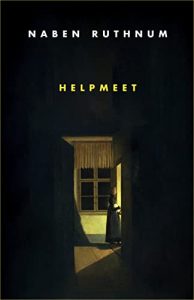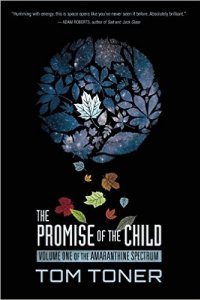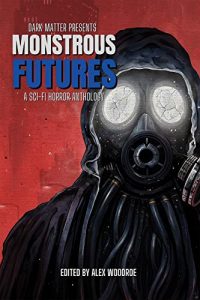Gabino Iglesias Reviews Helpmeet by Naben Ruthnum
 Helpmeet, Naben Ruthnum (Undertow 978-1-98896-438-6, $11.99, 94pp, tp) May 2022. Cover by Caspar David Friedrich.
Helpmeet, Naben Ruthnum (Undertow 978-1-98896-438-6, $11.99, 94pp, tp) May 2022. Cover by Caspar David Friedrich.
Naben Ruthnum’s Helpmeet is one of those rare books that is simultaneously grotesque, weird, and beautiful. With a dark mystery at its core, precise prose, and a healthy dose of body horror, Helpmeet offers a lot, and it does so in less than 100 pages, which makes it even more impressive.
The year is 1900 and Louise Wilk is a devoted wife who’s taking care of her dying husband, Dr. Edward Wilk, who is slowly rotting away from a strange disease. The couple is about to travel from Manhattan to the childhood home of Dr. Wilk, an orchard estate to the north. Louise is doing everything she can to keep her spirits up and to take care of Edward, even though she’s aware of how he was unfaithful to her many times and probably acquired his strange disease when he was with someone else. As Edward loses his mobility, his eyes, and his tongue, things get more complicated, but Louise soon begins to realize that Edward’s condition may not be a sickness. More than dying, Edward is transforming into something else, and Louise will be there to the end, to see what her husband becomes and, in a strange way, become part of the process and of her husband’s new form.
Helpmeet is creepy and elegant, and the mix makes for a truly memorable read. Ruthnum is great at building atmosphere, and the narrative is drenched in a kind of rotting, shifting darkness that refuses to be pinned down and fully understood until the last few pages.
One of the best trends in speculative fiction is the mixing of genres in new ways, and Helpmeet does that. The story contains elements of romance as Louise recounts her time with Edward. Then there’s also mystery, writing that belongs to the elusive genre we call literary fiction, and two kinds of horror: body horror and something else, something that deals with magic, darkness, and Edward’s bizarre, gory transformation. While the elegant prose and unrelenting creepiness bring to mind the work of writers like Algernon Blackwood and William Hope Hodgson, this is entirely Ruthnum’s work, and it feels unique while also containing some echoes of classic speculative fiction.
Besides the genre mixing, what makes Helpmeet memorable is the way Ruthnum’s elegant prose delivers horrific imagery. When the story starts, Edward is already in pretty bad shape, but as the narrative moves forward, what his body goes through becomes both more horrible and much weirder:
Louise had seen two tiny, questing fingernails emerging from her husband’s tear ducts. When she allowed herself to remember, as the water exceeded the glass and poured coolly over her hand, she could see the pink flesh behind those nails, a vital colour totally absent from Edward’s face, from his body.
Strangely enough, while the middle of the narrative is occupied mostly with the story of Edward’s bizarre sickness and the effects of it on his body, the narrative shifts focus at the end, and the love story – what Louise feels for Edward and what she wants – moves to center stage. The result is an ending that, besides being dark and weird, is also strangely touching.
Helpmeet keeps readers in the dark until the end, but when the truth is finally revealed, the darkness they were immersed in becomes even more impenetrable. However, it shows a silver lining, and it’s one that readers will keep thinking about long after they’ve turned the last page.
Gabino Iglesias is a writer, journalist, professor, and book reviewer living in Austin TX. He is the author of Zero Saints and Coyote Songs and the editor of Both Sides. His work has been nominated to the Bram Stoker and Locus Awards and won the Wonderland Book Award for Best Novel in 2019. His short stories have appeared in a plethora of anthologies and his non-fiction has appeared in the New York Times, the Los Angeles Times, and CrimeReads. His work has been published in five languages, optioned for film, and praised by authors as diverse as Roxane Gay, David Joy, Jerry Stahl, and Meg Gardiner. His reviews appear regularly in places like NPR, Publishers Weekly, the San Francisco Chronicle, Criminal Element, Mystery Tribune, Vol. 1 Brooklyn, the Los Angeles Review of Books, and other print and online venues. He’s been a juror for the Shirley Jackson Awards twice and has judged the PANK Big Book Contest, the Splatterpunk Awards, and the Newfound Prose Prize. He teaches creative writing at Southern New Hampshire University’s online MFA program. You can find him on Twitter at @Gabino_Iglesias.
This review and more like it in the August 2022 issue of Locus.
 While you are here, please take a moment to support Locus with a one-time or recurring donation. We rely on reader donations to keep the magazine and site going, and would like to keep the site paywall free, but WE NEED YOUR FINANCIAL SUPPORT to continue quality coverage of the science fiction and fantasy field.
While you are here, please take a moment to support Locus with a one-time or recurring donation. We rely on reader donations to keep the magazine and site going, and would like to keep the site paywall free, but WE NEED YOUR FINANCIAL SUPPORT to continue quality coverage of the science fiction and fantasy field.
©Locus Magazine. Copyrighted material may not be republished without permission of LSFF.







